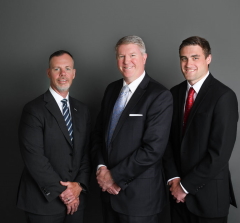What could you do (or do differently) in the months ahead?
How will your money habits change in 2017? What decisions or behaviors might help your personal finances, your retirement prospects, or your net worth?
Each year presents a “clean slate,” so as one year ebbs into another, it is natural to think about what you might do (or do differently) in the 12 months ahead.
Financially speaking, what New Year’s resolutions might you want to make for 2017 – and what can you do to stick by such resolutions as 2017 unfolds?
Strive to maximize your 2017 retirement plan contributions. Contribution limits are set for 2017 and will change if you are over the age of 50. Be sure to research just how much can be set aside in your retirement accounts.
Can you review & reduce your debt? Look at your debts, one by one. You may be able to renegotiate the terms of loans and interest rates with lenders and credit card firms. See if you can cut down the number of debts you have – either attack the one with the highest interest rate first or the smallest balance first, then repeat with the remaining debts.
Rebalance your portfolio. If you have rebalanced recently, great. Many investors go years without rebalancing, which can be problematic if you own too much in a declining sector.
College planning review. If your child has now reached his or her teens, see if you can get a ballpark figure on the cost of attending local and out-of-state colleges. Even better, inquire about their financial aid packages and any relevant scholarships and grants. If you have college savings built up, you can work with those numbers and determine how those savings need to grow in the next few years.
How do you keep New Year’s resolutions from faltering? Often, New Year’s resolutions fail because there is only an end in mind – a clear goal, but no concrete steps toward realizing it.
Financial new year’s resolutions tend to boil down to a common goal – the goal of paying yourself first. Think ahead – five, ten, or even twenty or thirty years ahead – and make this the year to plan to accomplish money goals, both big and small.
Brad Connors, CWS®
iWealth, Waseca MN
This material was prepared by MarketingPro, Inc., and does not necessarily represent the views of the presenting party, nor their affiliates. This information has been derived from sources believed to be accurate. Please note – investing involves risk, and past performance is no guarantee of future results. The publisher is not engaged in rendering legal, accounting or other professional services. If assistance is needed, the reader is advised to engage the services of a competent professional. This information should not be construed as investment, tax or legal advice and may not be relied on for the purpose of avoiding any Federal tax penalty. This is neither a solicitation nor recommendation to purchase or sell any investment or insurance product or service, and should not be relied upon as such. All indices are unmanaged and are not illustrative of any particular investment.
Securities, advisory services, and insurance products are offered through Investment Centers of America, Inc.® (ICA), member FINRA, SIPC, a Registered Investment Advisor, and affiliated insurance agencies. ICA and iWealth are separate companies.


